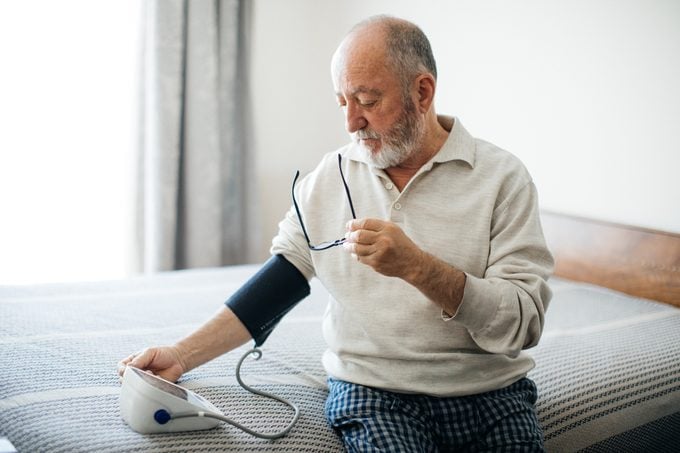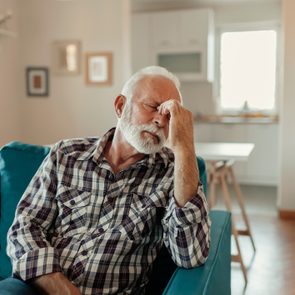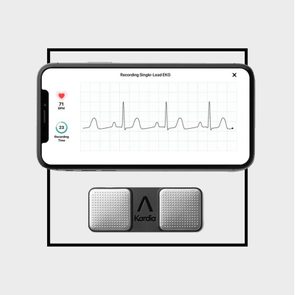Is Blood Pressure Higher in the Morning? What You Should Know
Updated: Oct. 10, 2022
High blood pressure in the morning may increase your risk for heart attack and stroke. Know your morning numbers and take steps to keep it in the normal range all day long.
Blood pressure and time of day
Blood pressure numbers tend to have a natural rhythm, rising and falling throughout the day, and some people with hypertension, also known as high blood pressure, may be prone to morning peaks.
So-called morning hypertension may be particularly dangerous because strokes and heart attacks, which can be consequences of raised blood pressure, are also more likely to occur during the morning hours, according to a 2018 consensus statement on morning blood pressure in the Journal of Clinical Hypertension.
A major risk factor for heart attack and stroke, high blood pressure occurs when the force of blood flowing through your blood vessels is too high for too long.
Systolic blood pressure is the upper number in a blood pressure measurement. It refers to the amount of pressure your blood is exerting against your artery walls when your heart is besting. The lower number, diastolic pressure, refers to how much pressure your blood is exerting against your artery walls when your heart is at rest. A blood pressure of less than 120/80 mm Hg is considered normal.
High blood pressure is greater than 130/80 mm Hg, according to the American Heart Association (AHA). Morning hypertension is a blood pressure reading of 135/85 mm Hg or higher that occurs between 6 a.m. and 10 a.m. regardless of your readings throughout the rest of the day.
Here’s what you need to know about morning hypertension and how to keep healthy blood pressure all day long.
Why does blood pressure rise in the morning?
Exactly why blood pressure may peak in the morning isn’t fully understood, but one theory is that work-related stress may stimulate your sympathetic nervous system to release the stress hormones adrenaline and cortisol, increasing heart rate and blood pressure.
Blood pressure tends to be higher on weekday mornings, which is why researchers think job stress may play a role. Stress can cause high blood pressure in the short and long term.
Another theory suggests that not taking the right blood pressure-lowering drugs at the right times may also lead to morning blood pressure surges. (Here are some other factors you didn’t realize were affecting your blood pressure reading.)
The best way to know if your blood pressure is higher in the morning is to test it at home throughout the day with a home blood pressure monitor as well as when you go for your doctor’s visits, says Salim Virani, MD, professor, sections of cardiology and cardiovascular research, Baylor College of Medicine, Houston.
Use the average of two or three readings taken within an hour of waking up to establish your morning blood pressure, the consensus paper suggests.

A predictor of future heart attacks and stroke
A 2016 study in the Journal of the American College of Cardiology suggests that morning high blood pressure is a better predictor of future heart attacks and stroke risk than your blood pressure when you are in your doctor’s office.
“Do some readings in the morning and some in the evening. This information will help your doctor better understand the patterns and if you need medication,” says Dr. Virani. “It can be dosed in a way that can even out any peaks,” he says.
Medications to even out peaks
There are long‐acting blood pressure medications that may help even out peaks as can timing doses of your current medication, Dr. Virani explains. It may be as simple as taking your medications before bed rather than in the morning. Some blood pressure pills aren’t effective for a full 24 hours, so you may need to split doses.
Never make any changes to which blood pressure medication you take, how you take it, or when you take it without first discussing it with your doctor, he cautions.
Sleep and morning blood pressure: What’s the connection?
Sleep and morning blood pressure may also be linked, says Vijay Nambi, MD, associate professor of medicine, Baylor College of Medicine, Houston.
“If you don’t get a good night’s sleep, your blood pressure will be higher,” Dr. Nambi says.
Getting better sleep starts with setting and sticking to wake and bedtime schedules, creating a cool and dark bedroom environment, and avoiding stressful activities before bed, according to the National Sleep Foundation. It’s also important to limit caffeine later in the day as that can keep you awake, and use your bed only for sleep and sex.
In addition, sleep apnea, which is marked by pauses in breathing while sleeping, can cause high blood pressure. When pauses in breathing occur, oxygen levels go down, which may lead to an increase in blood pressure. Treating underlying sleep apnea may improve fatigue and lower your blood pressure levels, Dr. Nambi says.
A continuous positive airway pressure (CPAP) device that administers air pressure through your nose while you’re asleep can treat sleep apnea. If you think you have sleep apnea or your partner constantly complains about your snoring—a symptom of sleep apnea—talk to your doctor about the next steps. (These home remedies for sleep apnea may also make a difference.)
Treating morning high blood pressure
High blood pressure is treatable, if caught early, Dr. Virani says. “There are so many medications, and we know that lifestyle changes work,” he explains.
“You have a lot of options, especially when we pick it up in the very early stages with no end-organ damage,” Dr. Virani continues. End-organ damage includes heart attack, stroke, vision problems, and/or kidney disease that can occur when blood pressure damages blood vessels in your body.
Taking control of any risk factors can help get your blood pressure in the normal range all day long, including the morning, he says. This includes regular exercise.
In one study, walking on the treadmill for 30 minutes in the morning lowered average blood pressure among older, overweight or obese men and women. These findings appear in Hypertension.
Eating a low-salt diet such as the DASH diet—short for Dietary Approaches to Stop Hypertension—or the Mediterranean diet may also make a big difference in your blood pressure. The Mediterranean diet is rich in healthy fats, whole grains, lean proteins, fruits, and vegetables.
Lastly, quitting smoking and drinking alcohol only in moderation—no more than two drinks a day for men and no more than one drink a day for women—can also make a difference.
The last word
High blood pressure in the morning may be particularly risky. The best way to get ahead of it is to know your numbers, figure out why they are higher in the a.m., and take steps to get them in the normal range all day long. Taking blood pressure readings at home and sharing this information with your doctor is a key first step.
Next, here’s what you need to know about high blood pressure headaches.





















